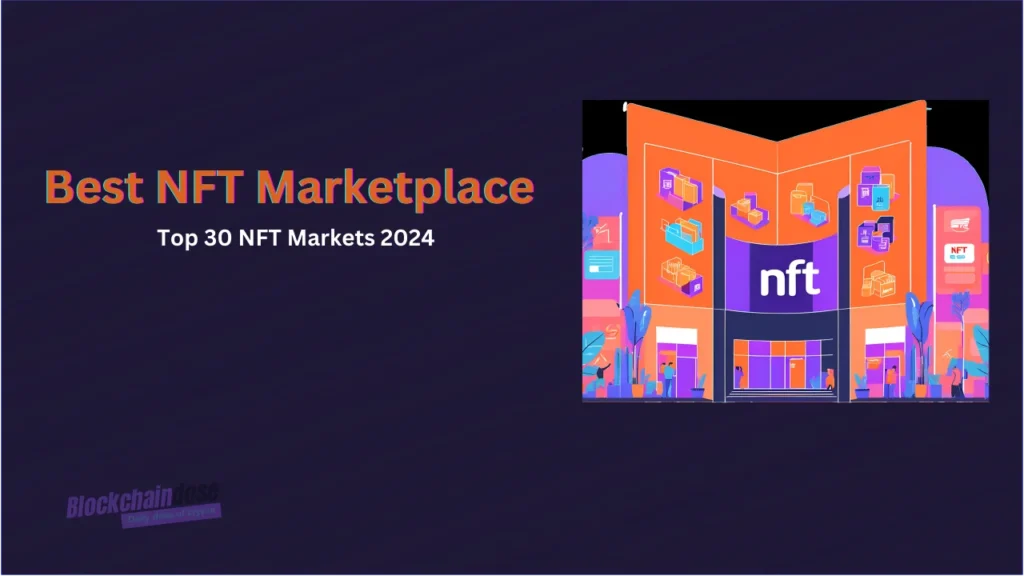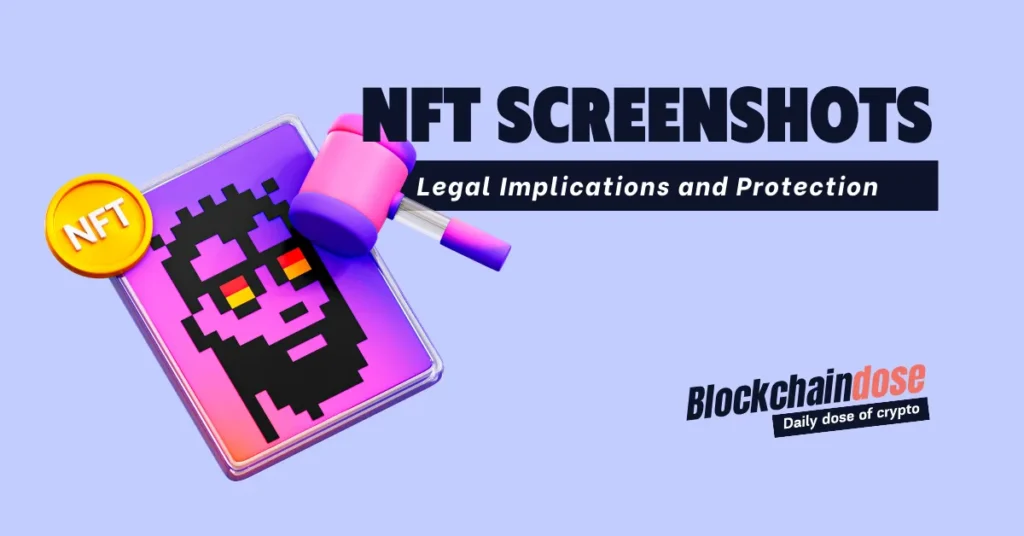The cryptocurrency market has experienced substantial expansion in recent years. If you’re considering entering the world of cryptocurrency investment, some might advise against it now, thinking the ship has sailed, especially with popular cryptos like Bitcoin already worth a lot.
So, the question arises: Is it too late to start investing in cryptocurrencies? Some believe it might be too good to be true when the market performs exceptionally well. This is the time when people regret not getting involved sooner.
However, here’s the critical insight: You can still participate in the cryptocurrency excitement and potentially make profits. Lesser-known cryptocurrencies could increase in value if you choose to hold onto them.

Down in this post, we provided a complete detail on what are lesser-known cryptocurrencies to buy.
What is a Lesser-Known Cryptocurrency?
Lesser-known cryptocurrencies are like hidden gems in the digital money world, often called micro-cap coins. These small players have lower market values than the more famous ones but have an excellent chance to grow.
Because they started tiny and have yet to catch the eye of big investors, people who invest early might get in before everyone else finds out. It’s like finding a valuable secret before it becomes well-known. So, these not-so-famous coins can be an excellent choice for people who want good opportunities in the cryptocurrency world.
Below are some lesser-known cryptocurrencies that could increase in value if you hold onto them.
10 Lesser-Known Cryptocurrencies to Buy in 2024
1. Binance Coin (BNB)
Binance Coin (BNB) is a cryptocurrency tied to the Binance platform, introduced in July 2017 through an ICO. BNB, which operates on the Binance Smart Chain (BSC), is notable for its low transaction fees and acts as a utility token in the Binance ecosystem.
Special features include an auto-burn mechanism that maintains a supply-demand balance. BNB’s programmability on the BSC allows for diverse applications, making it a prominent and versatile digital asset.
Pros
- BNB Chain has affordable fees thanks to its special PoSA consensus mechanism.
- Binance users can leverage BNB for reduced costs, payments, and exclusive NFT access.
- The auto-burn feature ensures an ongoing supply-demand balance until 100 million BNB remain.
- BNB Smart Chain’s early-stage smart contracts offer high programmability.
- BNB Chain allows the tokenization of digital and real-world assets.
Cons
- As a relatively new project, BNB Chain needs continuous innovation and adoption.
- Tied to Binance, the PoSA consensus model leans towards centralization.
- Binance, linked to BNB Chain, faces frequent cyberattacks, posing security concerns.
2. Cardano (ADA)
Cardano (ADA) is a decentralized proof-of-stake (PoS) blockchain. It was created by Charles Hoskinson, who was the co-founder of Ethereum, in 2017. Positioned as an enhanced alternative to proof-of-work (PoW) blockchains, Cardano prioritizes efficiency, scalability, and sustainability. With a commitment to innovation, ADA holds prominence in the cryptocurrency market, offering a versatile platform for smart contracts and decentralized applications.
Also, watch the following video to know more about this crypto and prediction:
Pros
- ADA employs a more energy-efficient proof-of-stake (PoS) consensus model.
- Named after Ada Lovelace, ADA holders have voting rights for network changes.
- ADA offers a flexible and scalable platform for smart contracts and decentralized applications.
- It stands out for its potential in the NFT market and metaverse development.
- It has a great team of experts leading the way.
- The platform has formed meaningful partnerships with governments and prominent organizations.
Cons
- ADA’s price has experienced significant corrections in recent times.
- Compared to Ethereum, Cardano is still in the early stages of development and adoption.
- According to the SEC, possible removals from U.S. exchanges present regulatory difficulties.
- ADA may face further price pressure due to uncertainties surrounding regulatory actions.
Pro Tip: ADA, consistently a top 10 cryptocurrency by market cap, displays impressive price growth. Consider investing in Cardano, as its future value depends on widespread blockchain acceptance and strategic partnerships. Keep an eye on Cardano’s trajectory for potential opportunities.
3. Ethereum (ETH)
Ethereum (ETH) holds the second-largest market capitalization in cryptocurrency, following Bitcoin. Renowned for its blockchain’s capability to store intelligent contracts, Ethereum revolutionizes decentralized applications, particularly in decentralized finance (DeFi).
The platform enables global value transfers without intermediary intervention, embodying autonomy and near-anonymous transactions.
Pros
- Ethereum 2.0 upgrades promise enhanced speed, reduced fees, and increased scalability.
- Significant price corrections offer potential buying opportunities for long-term gains.
- Ethereum’s role in the NFT market and metaverse development amplifies its value.
- The ecosystem fosters innovation with projects ranging from microgrids to EV charging stations.
- Investing in Ethereum provides portfolio diversification, distinct from assets like Bitcoin.
- Anticipated dominance in decentralized finance (DeFi) contributes to long-term solid potential.
- Ethereum’s decentralized nature ensures information on its blockchain remains uncensored.
Cons
- Competition from emerging “Ethereum Killers” addresses scalability and transaction fee issues.
- Historical security vulnerabilities, like the DAO incident, underscore smart contract execution risks.
- Extreme volatility poses a potential risk, with sharp price fluctuations impacting investor confidence.
4. Cosmos (ATOM)
Founded in 2017, Cosmos (ATOM) represents a visionary blockchain project addressing critical issues in the industry. It establishes an expanding ecosystem of interconnected applications, offering a decentralized future. Cosmos aims to overcome blockchain challenges by providing a network of scalable, interoperable blockchains, with its native digital currency, ATOM, serving as a critical component.
Pros
- Cosmos processes over 1,000 transactions per second, ensuring scalability.
- Passive income opportunities through staking and day trading of ATOM.
- Active community engagement on various platforms, fostering support.
- Projects like Binance Chain and Kava show that Cosmos has practical uses in the real world.
Cons
- Staking challenges include a three-week lock-up period and risks associated with misbehaving validators.
- Facing competition from newcomers like Chainlink and Avalanche.
- ATOM’s price is susceptible to market speculation, not necessarily reflecting network adoption.
5. Komodo (KMD)
Komodo (KMD) emerges as the next big cryptocurrency, showcasing a recent price rate of $0.44 to $0.79, with the potential for further gains upon surpassing the $1.79 resistance. Renowned for its blockchain platform, KMD employs atomic swaps, facilitating direct peer-to-peer cryptocurrency exchanges.
It prioritizes user privacy by utilizing Zero Knowledge Proof, ensuring 100% transaction confidentiality. The incorporation of delayed proof-of-work enhances security through a notarization mechanism.
Pros
- Komodo ensures high-level security with a two-tier transaction verification system, enhancing network reliability.
- Its implementation of atomic swaps allows for cross-chain transactions, staying aligned with contemporary cryptocurrency trends.
- The zk-SNARK protocol is like a secret code that lets you make private transactions without sharing your personal information.
- Komodo pioneers innovative solutions, such as decentralized ICOs, and supports user-created peer chains.
- The network exhibits commendable speed and efficiency, maintaining optimal performance even during high traffic.
Cons
- Komodo faces limited popularity due to insufficient marketing and community expansion efforts.
6. Tether (USDT)
Tether (USDT) is a special kind of cryptocurrency that’s always worth $1. It was created in 2014 and is used in the digital money world. People like it because it’s stable and doesn’t change much in value. A company in Hong Kong operates Tether.
Though some people worry about how open it is, many still find it helpful for buying and selling other cryptocurrencies. Tether’s mechanisms aim to ensure stability and transparency, fostering confidence and usability in the ever-evolving crypto world.
Pros
- USDT’s stable 1:1 peg to USD provides a dependable store of value amid market volatility.
- High liquidity makes USDT easily tradable across various exchanges.
- It utilizes blockchain for swift and efficient transactions.
- Operates within a decentralized crypto ecosystem, leveraging blockchain advantages.
- It serves as a risk hedge during unpredictable market conditions.
- It enables quick global financial transactions, promoting financial inclusion.
Cons
- Faces occasional concerns about maintaining its 1:1 peg to USD.
- Limited transparency and independent audits of Tether Limited’s currency reserves.
- Users storing USDT on exchanges bear counterparty risk.
- Facing competition from transparent and regulatory-compliant stablecoins.
- Accusations of market manipulation due to substantial trading volume.
- Centralized issuer control raises censorship and management concerns.
7. Dogecoin (DOGE)
Dogecoin, established in 2013 as a lighthearted parody of cryptocurrencies, has evolved into a notable digital asset. Dogecoin is currently valued at $0.082365 per (DOGE/USD) with a market cap of USD 11.74 billion.
Cryptocurrency is showing growth over time. Many people like it, mainly because of Elon Musk’s support. It’s not like Bitcoin or Ethereum, but it’s easy to buy and has a big community. People think it might be a good crypto investment, but some worry that it needs to improve its technology faster. Also, there are lots of Dogecoins, which could affect its value. So, while Dogecoin is fun, it has both good and not-so-good sides.
Pros
- Elon Musk’s support and community backing contribute to its popularity.
- Decentralization ensures strength against centralized control.
- Listing on multiple exchanges enhances accessibility.
- Scalability addresses challenges for widespread adoption.
- Low prices allow for affordable investment opportunities.
Cons
- Slow tech development hampers competitiveness.
- Potential price volatility raises uncertainty for investors.
- Unlimited coin supply may impact long-term value.
Also Read: Crypto Market Analysis And Trends 2024
8. RNDR Coin
RNDR is another lesser known and highly beneficial coin which is based on the render network which is further based on the decentralized GPU system. The coin is mostly by the computer programmers who have GPU mining systems. People work as “Node Operators” who can earn by using the RNDR tokens. Basically, it works on the principle of the blockchain based system. If you are newbie in the crypto field and want to make high profiles, we highly recommend using this coin.
Pros
- Global accessibility
- Blockchain security
- Easy to use render tokens
- Decentralized computer networking system
Cons
- High volatility
- Liquidity issues
9. RUNE Coin
RUNE is a cryptocurrency associated with the THORChain project. THORChain is a decentralized liquidity network that enables users to swap assets across different blockchains without the need for a centralized intermediary. THORChain is designed to provide decentralized liquidity, allowing users to trade assets on various blockchains directly without relying on centralized exchanges.
Pros
- Liquidity provision incentives
- Security
- Native utility token
Cons
- Regulatory uncertainty
- Smart contract risks
10. INJ Crpto
NJ refers to Injective Protocol, and it is associated with the Injective Chain, which is a decentralized exchange (DEX) protocol. Injective Protocol aims to provide a decentralized exchange platform for trading a variety of assets, including cryptocurrencies, synthetic assets, and traditional financial instruments.
Pros
- Diverse range of financial assets
- Innovation
- Less transaction cost
Cons
- Volatility and liquidity
Tips to Invest in Lesser-Known Cryptocurrencies Safely
1. Understanding Exchanges:
Before investing, explore different platforms to buy crypto. With over 500 options, read reviews and seek advice from experienced investors.
2. Keep Your Crypto Safe:
Storing your crypto is crucial. Whether on an exchange or a digital wallet, understand each option’s benefits, technical aspects, and security before investing.
3. Diversify Your Investments:
Diversification is key. Instead of putting all your money in one cryptocurrency, like Bitcoin, explore various options to spread your investment.
4. Prepare for Market Swings:
The crypto market is volatile, experiencing dramatic price swings. If you’re uncomfortable with such fluctuations, there might be better choices than crypto investment.
5. Caution with New Investments:
Crypto is relatively new and speculative. If you decide to jump in, start small and be cautious with new and unfamiliar investments.
6. Online Safety Matters:
Enhance your online safety with reliable antivirus software like Kaspersky Internet Security. It defends against malware and spyware and secures online transactions with strong encryption.
Related Post: Risk Management In Crypto Trading
Frequently Asked Questions on Lesser-Known Cryptocurrencies
Where to find new crypto projects before listing?
You might find new cryptocurrencies offered in a presale before they hit exchanges. Look out for announcements on social media, news platforms, or crypto-tracking sites like CoinMarketCap. Always thoroughly research the project and its team before investing, just like with any other cryptocurrency.
Which crypto to buy today for the long term?
Selecting a cryptocurrency for long-term investment involves considering project fundamentals, technology, and market trends. Some popular choices include Bitcoin, Ethereum, Binance Coin, Cardano, and Solana. Before making investment choices, it’s crucial to do in-depth research and understand your comfort with risk.
Which crypto to buy today for the short term?
Binance Coin (BNB) and Cardano (ADA) are tokens used on an exchange, and lots of crypto traders think they’re good for short-term investment. Binance Coin stands out due to its multiple use cases within and beyond the exchange, making it a favored choice among traders.
Which is the best coin to buy on Binance right now?
In the current Binance market trends, EthereumBSC (ETHBSC) stands out. Bitcoin (BTC) remains a steadfast pioneer, while Ethereum (ETH) and Binance Coin (BNB) also offer solid considerations due to their historical significance and ongoing relevance in the crypto space.
Conclusion – What are Lesser-Known Cryptocurrencies to Buy
Even if you’re getting into cryptocurrencies now, you’re still in the early crowd. Instead of only focusing on popular coins, check out others like Binance Coin, Cardano, Ethereum, Cosmos, Dogecoin, Komodo, and Tether.
These may not be the superstars right now, but they could grow. Just do some research and be patient to find coins that could make a difference.
Cryptocurrencies are constantly changing, and there are many opportunities to find something extraordinary. So, keep learning and exploring; you might discover the next big thing in the crypto world!
Click on this link to learn more about Crypto Buying and Trading Tips!




